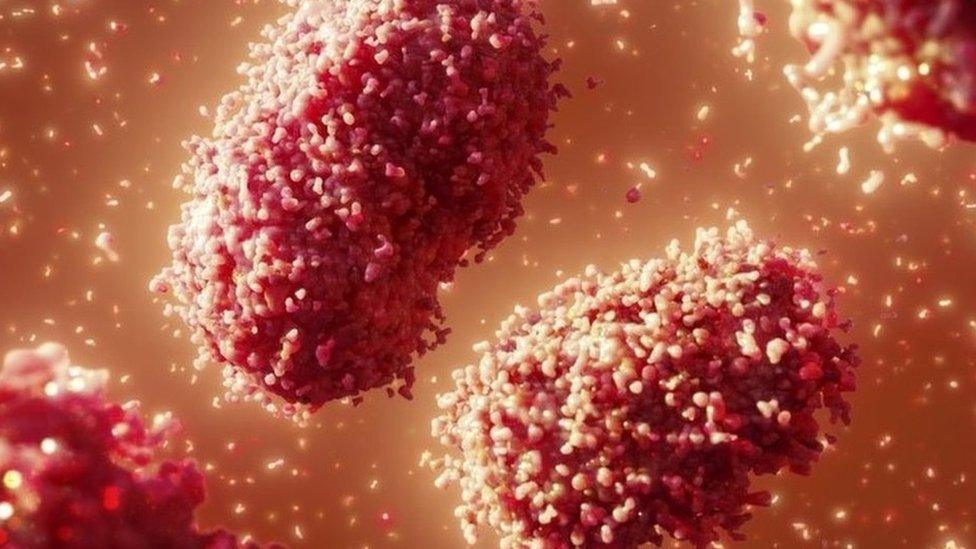Limited vaccine supplies to contain monkeypox rise in Scotland
- Published
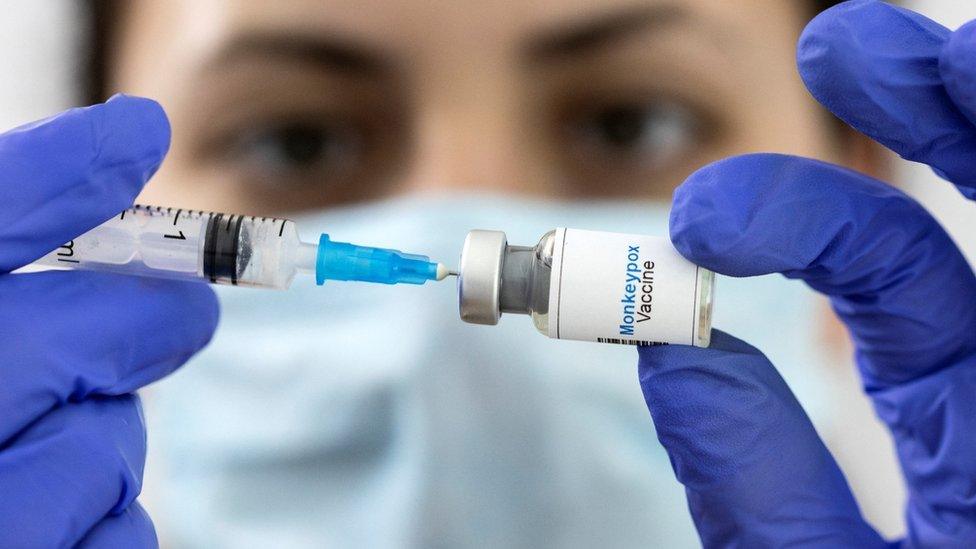
Scotland is working with a "limited supply" of the vaccines that protect against monkeypox as cases increase.
Public Health Scotland (PHS) said there had now been 79 laboratory confirmed cases of the disease, a rise of 10 over the past two and half weeks.
It said the remaining smallpox vaccine doses were "being administered at pace" to contain cases.
Most Scottish cases had London or Europe travel links and were in men who are gay, bisexual or have sex with men.
However, anyone who comes into close contact with someone who has monkeypox could potentially contract the virus.
Vaccination can help prevent new cases.
More than 3,000 people have been diagnosed with monkeypox in the UK since the epidemic began in May.
With a "limited global supply" of the smallpox vaccine, which can also protect against monkeypox, PHS medical director Dr Nick Phin said staff were working with others across the UK to boost stocks.
Dr Phin said: "Remaining available doses are being administered at pace in Scotland as this gives the greatest opportunity to contain spread while numbers are still relatively small.
"PHS continues to work with colleagues across the UK to ensure additional vaccinations are available, and is closely following the work of the pilot sites in England looking at the use of intradermal administration of the vaccine."
Trials are being carried out to see if a smaller dose of the vaccine injected into the upper layer of the skin - an intradermal vaccine, external - is as effective as the regular injection.
Dr Phin added: "If you are currently unvaccinated, please ensure you are aware of the signs and symptoms, take steps to reduce your risk of exposure to monkeypox and seek medical advice if you think you may have the infection."
PHS has previously said anyone with an unusual blister-like rash or small number of blister-like sores on any part of their body, including their genital area, should avoid close contact with others and seek medical advice via telephone if they have any concerns.
Related topics
- Published22 August 2022
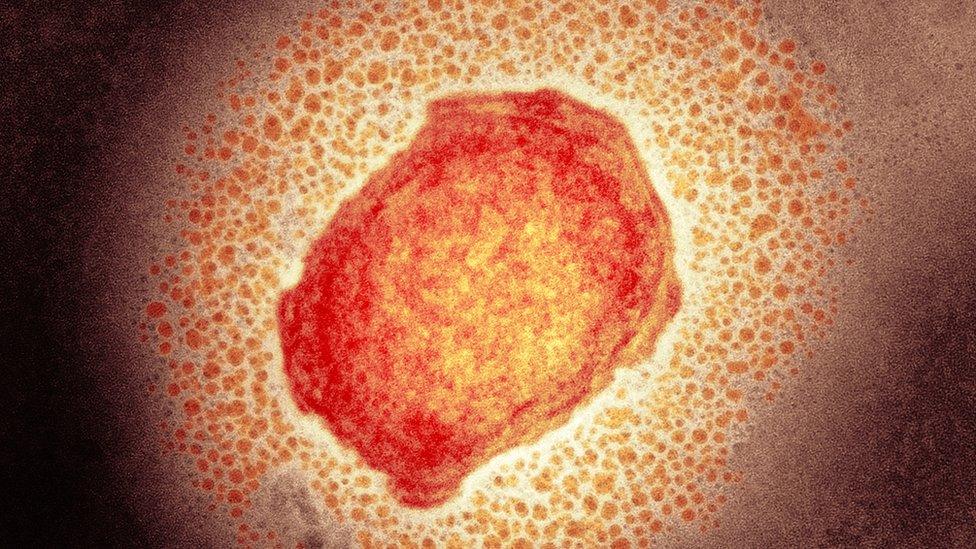
- Published19 August 2022
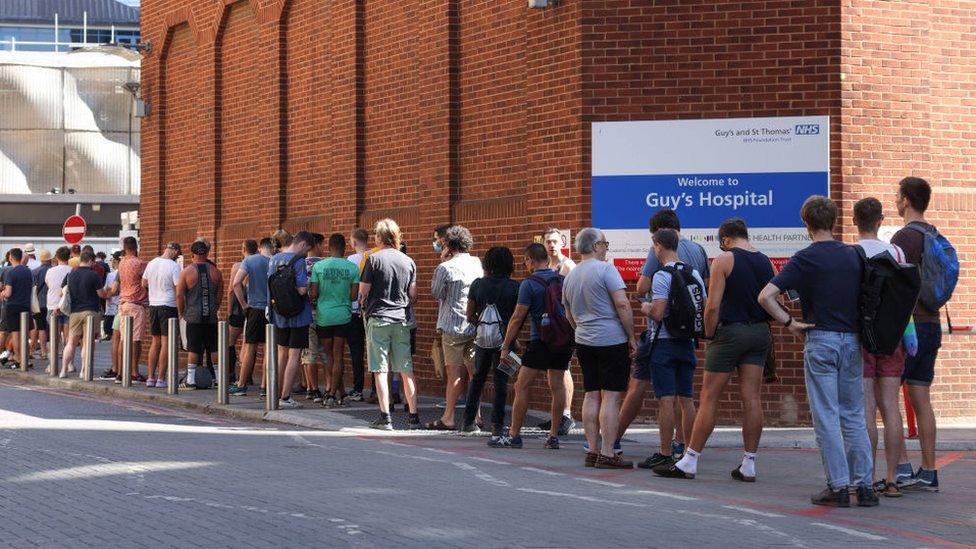
- Published15 August 2022
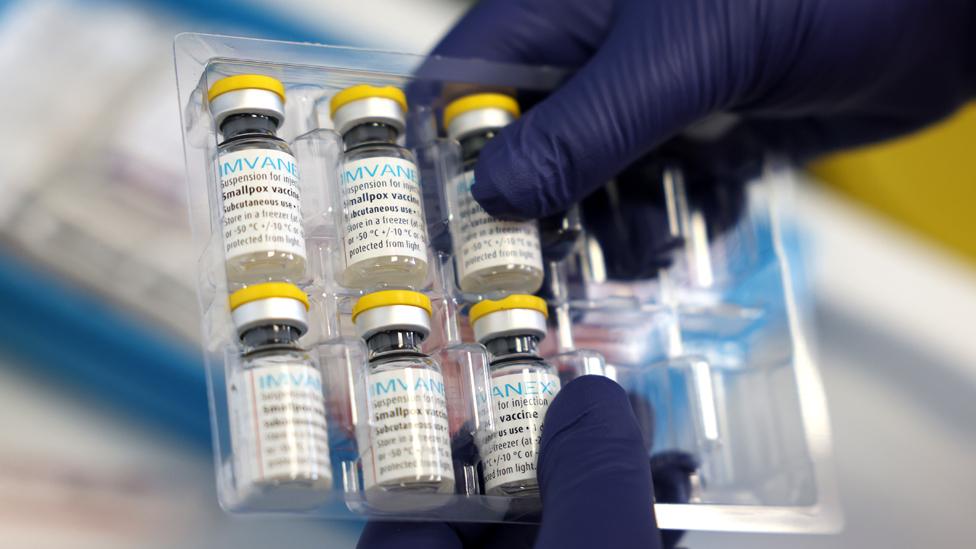
- Published9 August 2022

- Published6 August 2022
- Published5 August 2022
